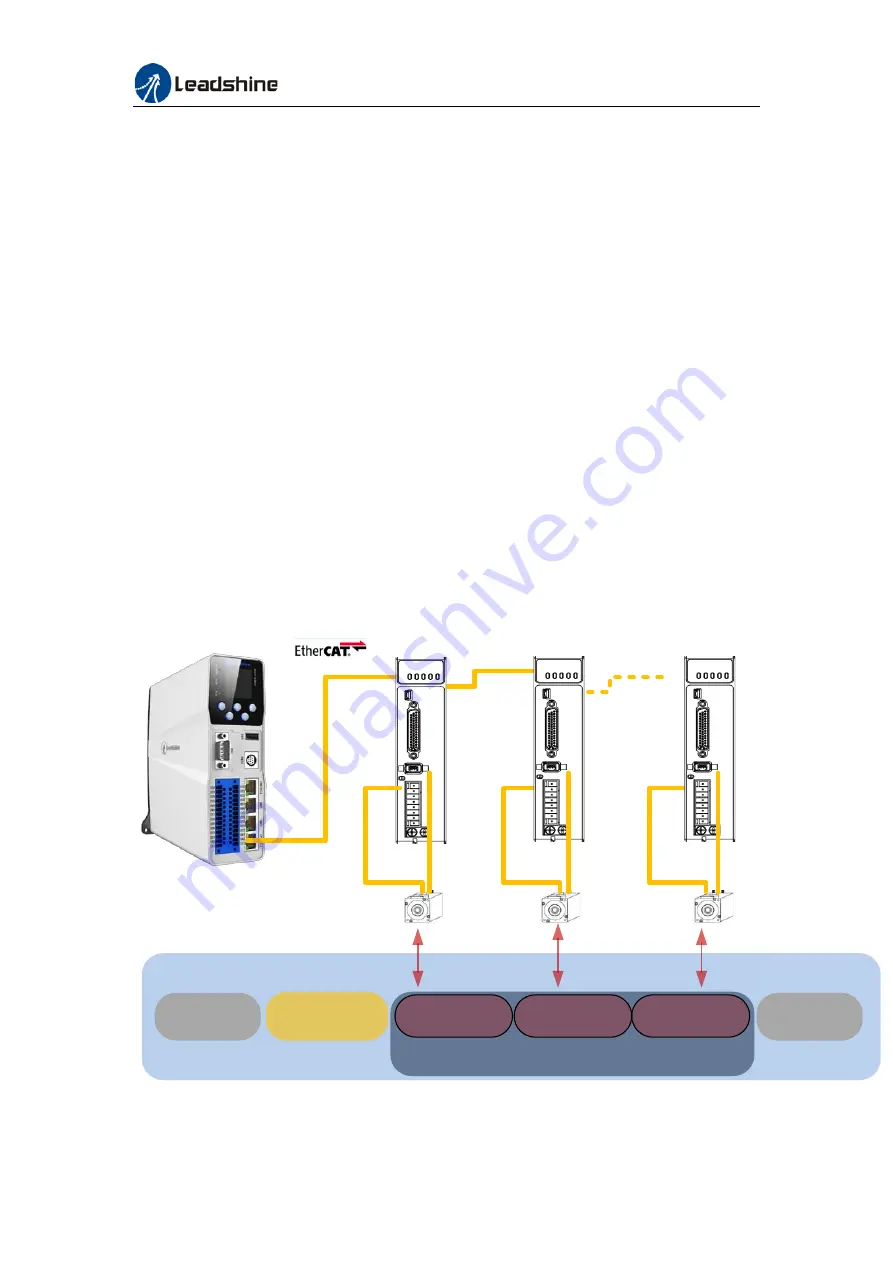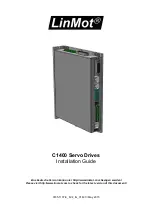
User manual of EL8-EC***F AC Servo
291
Chapter 7 EtherCAT communication
7.1 EtherCAT principle function
In comparison to Ethernet protocol which requires huge bandwidth for packets to be
moved between master and clients, EtherCAT communication protocol breaks through
this systemic limitation of Ethernet which requires every client to receive the whole data
package from the master.
The EtherCAT master sends a telegram that passes through each node. Each EtherCAT
slave device reads the data addressed to it “on the fly”, and inserts its data in the frame as
the frame is moving downstream. The frame is delayed only by hardware propagation
delay times. The last node in a segment (or drop line) detects an open port and sends the
message back to the master using Ethernet technology’s full duplex feature.
The telegram’s maximum effective data rate increases to over 90 %, and due to the
utilization of the full duplex feature, the theoretical effective data rate is even higher than
100 Mbit/s (> 90 % of two times 100 Mbit/s).
The EtherCAT master is the only node within a segment allowed to actively send an
EtherCAT frame; all other nodes merely forward frames downstream. This concept
prevents unpredictable delays and guarantees real-time capabilities.
Controller
EL8-EC
(1)
EL8-EC
(2)
EL8-EC
(3)
Ethernet
header
EtherCAT
frame header
EtherCAT Telegram
Ethernet
Datagram 2
Datagram 1
Datagram 3
EtherCAT in standard Ethernet frame
















































